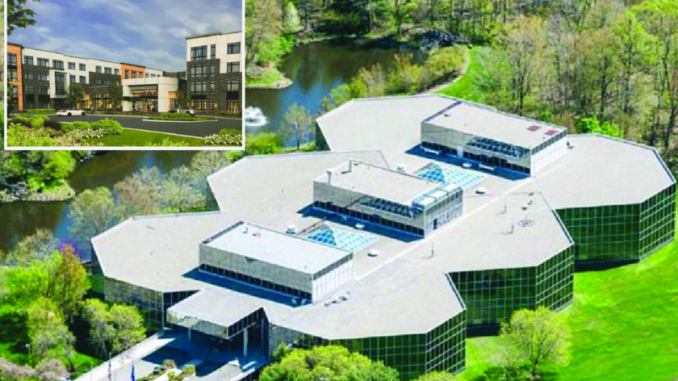
PARK RIDGE, N.J.—At least one resident, Burton Hall, has filed a formal legal objection to the borough’s affordable housing settlement that permits a 448-unit development, including 68 affordable units, on former Sony property and pays $150,000 to Fair Share Housing Center to help reimburse its legal fees.
Hall has criticized the settlement on several occasions, including the Nov. 23, 2020 council meeting where the council voted 4–2 to approve the settlement.
At that meeting, borough attorneys strongly advised a settlement after court decisions had gone against the borough and the special master had increased recommended housing density at the Sony tract up to 35 dwelling units per acre, from an initial 12–15 dwelling units per acre.
A fairness hearing before Judge Gregg Padovano to determine whether the settlement agreement satisfies the borough’s legal obligation to provide an opportunity for affordable housing will be held Jan. 15 in Superior Court, Hackensack, via an online session.
In a four-page objection letter, Hall outlined what he believed were challenges to the approved settlement. Hall noted that Padovano banned an expert witness set to testify for Park Ridge, disallowed a 51-unit, 100% affordable development that the borough had negotiated, and threatened to remove local “immunity” against builder’s remedy lawsuits if the borough did not agree to a developer’s proposal.
“Park Ridge was a small town demonstrating the will to do the right thing for Affordable Housing needs and its existing residents. Yet, it would appear that both Judge Padovano and Master (Frank) Banisch went to great lengths to essentially deny Park Ridge its right to a fair trial,” wrote Hall.
“The Park Ridge Affordable Housing case must be revisited from the get-go to afford the town the fair trial that is its right. Francis Banisch should be removed as Park Ridge Special Master for apparent unprofessional and prejudicial conduct. Judge Gregg Padovano should step aside as judge presiding over this case because he has lost the public’s confidence in providing fair oversight in this matter,” wrote Hall.
“At present the New Jersey Supreme Court-enabled Affordable Housing Mandate has an insatiable appetite that every 10-years returns to devour more of a town. The Affordable Housing Mandate must be revisited and have common sense applied. It must be reined in,” he concludes.
[See Letters, this issue, for more, including on a petition drive seeking support for Hall’s formal objection.]
Outreach to Padovano’s chambers to determine how many objections had been filed was not returned. Calls to Borough Attorney Anthony Bocchi went unreturned by press time.
The fairness hearing culminates five-plus years of litigation and negotiation between Park Ridge and three intervenors, most notably Hornrock Properties LLC, which battled the borough to construct up to 972 units of multifamily housing on 30 acres of former Sony property.
Hornrock contended the multifamily units could help Park Ridge fulfill its unmet need of 225 affordable units; however, Park Ridge alleged unmet need was “aspirational” and that its 2018 Affordable Plan that provided opportunity for 81 units met its “realistic development potential” for affordable units.
The Park Ridge plan also showed minimal development on the former Sony property, citing environmental constraints and zoning for office and research facilities.
Hornrock Properties transferred the Sony property, as well as seven adjacent acres in Montvale, where a 185-unit inclusionary development is planned, to Landmark AR Park Ridge, LLC, of which Hornrock is a partner with two other entities.
[For more, see “Landmark AR Park Ridge LLC includes Hornrock, two others,” Nov. 30, 2020.]
Possible court fines and legal costs were also cited as reasons to settle by borough attorneys, with Mayor Keith Misciagna describing legal fees of almost $700,000 yearly for several years as “bleeding us” and delaying other capital needs.
Following the Nov. 23 vote to settle, borough attorneys appeared before Padovano the next day to provide an update and schedule a fairness hearing. Objectors faced a Dec. 28 deadline to lodge written objections with the court.
